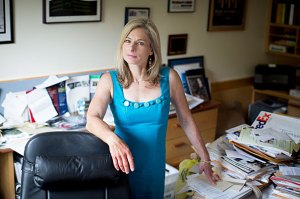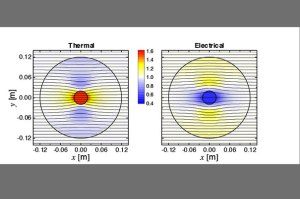Tag: Peter Reuell
-
Health
Toward genetic editing
Led by David Liu, professor of chemistry and chemical biology, a team of Harvard researchers developed a system that uses commercially available molecules called cationic lipids to deliver genome-editing proteins into cells.
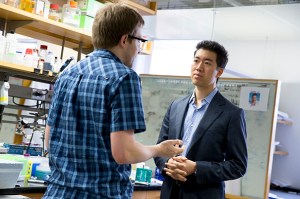
-
Health
Status shift for whale pelvic bones
New research challenges the notion that the small pelvic bones found in whales are evolutionary vestiges.
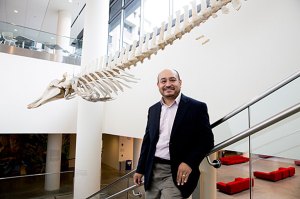
-
Health
Mixed results in report on concussions
While most colleges and universities in the National Collegiate Athletic Association have created programs to help diagnose and treat concussions sustained by their athletes, many are not fully meeting the NCAA’s standards, according to new research.
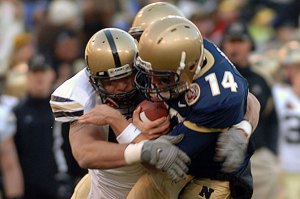
-
Campus & Community
Fannie Cox Prize to Burton, Musunuru
Briana Burton, associate professor of molecular and cellular biology, and Kiran Musunuru, an assistant professor of stem cell and regenerative biology, have been named the winners of the 2014 Fannie Cox Prize for Excellence in Science Teaching.
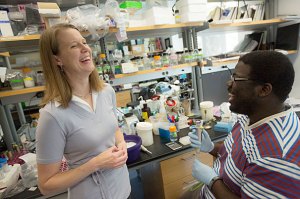
-
Campus & Community
Miles to go
Harvard physicist Jenny Hoffman has a passion for distance. Last month in Cleveland she brought home the 2014 national championship in USA Track and Field’s 24-Hour Run, posting a final distance of more than 127 miles.
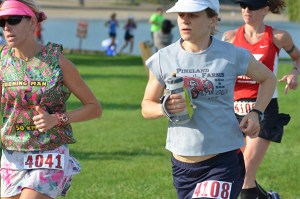
-
Campus & Community
Funding for projects with promise
Four scientists from across Harvard will receive nearly $8 million in grant funding through the National Institutes of Health’s High Risk-High Reward program to support research into a variety of biomedical questions, ranging from how the bacterial cell wall is constructed to how the blood-brain barrier works.
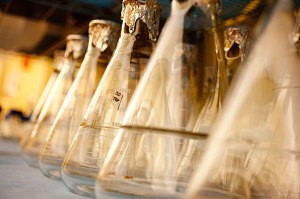
-
Health
Study of lizards shows trade as a force in biodiversity
New research shows that trade is one of the major drivers of biodiversity among lizard species in the Caribbean islands.

-
Science & Tech
A read on seawater sulfate
A tool developed by Professor David Johnston and colleagues might help shed light on biogeochemical cycling in oxygen minimum zones.
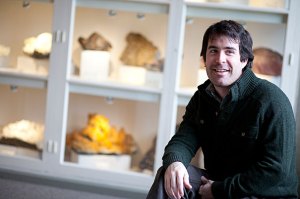
-
Health
All goes swimmingly
Using simple hydrodynamics, a team of Harvard researchers was able to show that a handful of principles govern how virtually every animal — from the tiniest fish to birds to the largest whales — propel themselves through the water.
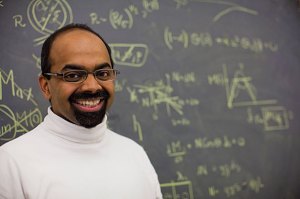
-
Health
Deadly violence a natural tendency in chimps, study finds
A new study shows that chimps engage in violent and sometimes even lethal behavior regardless of human effects on local ecology.
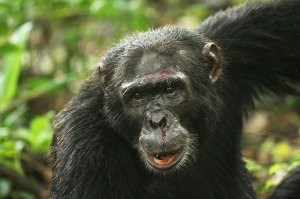
-
Science & Tech
Cutting the cord on soft robots
Researchers at Harvard’s School of Engineering and Applied Sciences and the Wyss Institute for Biologically Inspired Engineering have developed the world’s first untethered soft robot — a quadruped that can stand up and walk away from its designers.
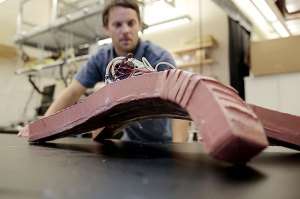
-
Science & Tech
Magnetic attraction
Harvard scientists have developed a system for using magnetic levitation technology to manipulate nonmagnetic materials, potentially enabling manufacturing with materials that are too fragile for traditional methods.
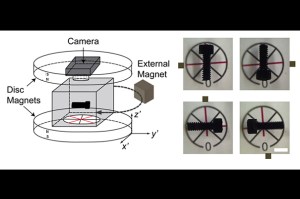
-
Health
From chance meeting, a chance to save lives
Harvard scientists have developed a new test for sickle cell disease that provides results in just 12 minutes and costs as little as 50 cents — far faster and cheaper than other tests.
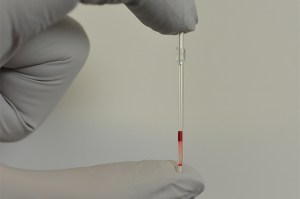
-
Health
Forces of isolation
Research led by a Harvard biologist demonstrated a method for measuring the strength of selection in favor of reproductive isolation.
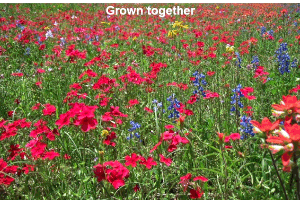
-
Health
When cooperation counts
A new study conducted by Harvard scientists shows that in deer mice, a species known to be highly promiscuous, sperm clump together to swim in a more linear fashion, increasing their chances of fertilization.
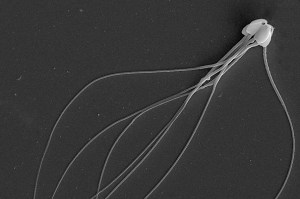
-
Science & Tech
Fighting unfairness
A new study by Harvard scientists suggests that, from a young age, children are biased in favor of their own social groups when they intervene in what they believe are unfair situations. But as they get older, they can learn to become more impartial.
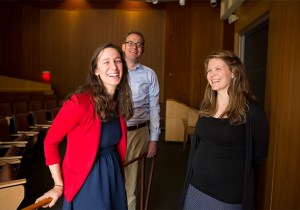
-
Health
Sense of scents
A new study sheds light on the extent to which animals can make distinctions among scents.
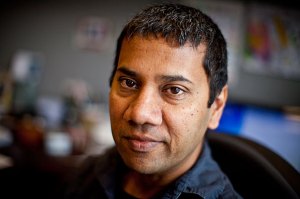
-
Health
Neurons at work
Using genetic tools to implant genes that produce fluorescent proteins in the DNA of transparent C. elegans worms, Harvard scientists have been able to shed light on neuron-specific “alternative splicing,” a process that allows a single gene to produce many different proteins.
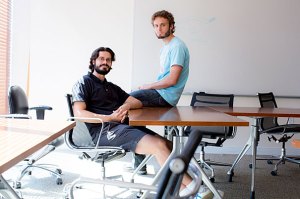
-
Science & Tech
A new view of gentrification
Researchers used Google Street View to conduct a study of gentrification in Chicago.
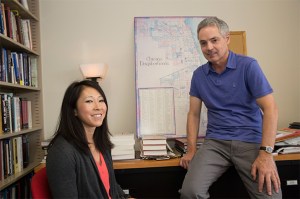
-
Health
Help for halting autism symptoms
A new study shows that boosting inhibitory neurotransmission early in brain development can help reverse deficits in inhibitory circuit maturation that are associated with autism.
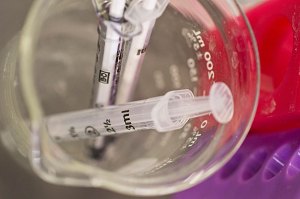
-
Campus & Community
Adam Cohen receives 2014 Blavatnik Award
Adam Cohen, professor of chemistry and chemical biology and of physics, has been named one of three winners of the 2014 Blavatnik National Awards, which honor young scientists and engineers who have demonstrated important insights in their respective fields and who show exceptional promise going forward.
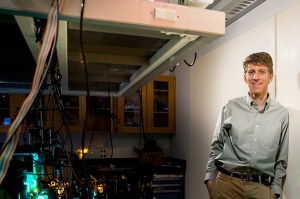
-
Health
Cheese-based research
Bauer Fellow Rachel Dutton has identified three general types of microbial communities that live on cheese, opening the door to using each as a “model” community for the study of whether and how various microbes and fungi compete or cooperate as they form communities, as well as what molecules and mechanisms are involved in the…
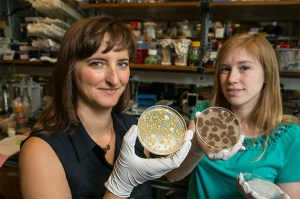
-
Health
Untangling spider webs
The largest-ever phylogenetic spider study shows that, contrary to popular opinion, the two groups of spiders that weave orb-shaped webs do not share a single origin.
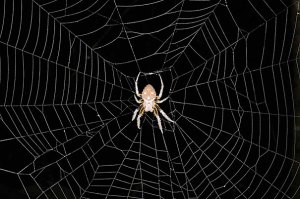
-
Health
Viewing how neurons work
A new technique for observing neural activity will allow scientists to stimulate neurons and observe their firing pattern in real time. Tracing those neural pathways can help researchers answer questions about how neural signals propagate, and could one day allow doctors to design individualized treatments for a host of disorders.
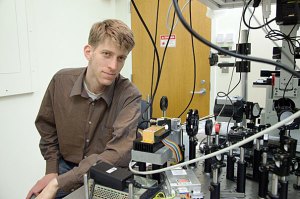
-
Health
Sizing up bacteria
A new theoretical framework outlined by a Harvard scientist could help solve the mystery of how bacterial cells coordinate processes that are critical to cellular division, such as DNA replication, and how bacteria know when to divide.
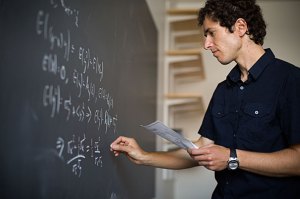
-
Science & Tech
Tomorrow isn’t such a long time
A study by Harvard researchers and colleagues tested ways to encourage decisions mindful of future generations.
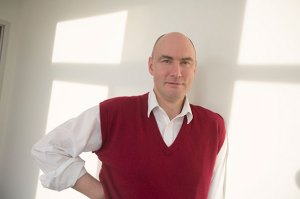
-
Campus & Community
5 named Harvard College Professors
Their scholarly interests range from the design of programming languages to health economics to the molecular changes that influence evolutionary fitness. One thing the five faculty members who were awarded Harvard College Professorships in recent weeks have in common is a gift for instilling passion for education in their students.
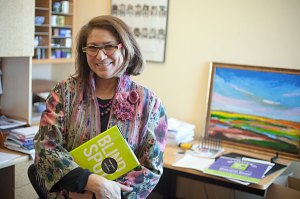
-
Science & Tech
Worrisome growth pattern
Forest growth is starting to show the effects of climate change, new research finds.
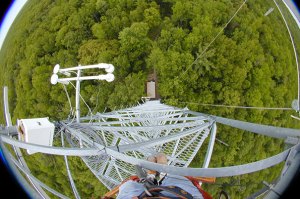
-
Science & Tech
Delving into dark matter
Harvard physicists have suggested that a disk of dark matter may lie along the center line of the galaxy.
